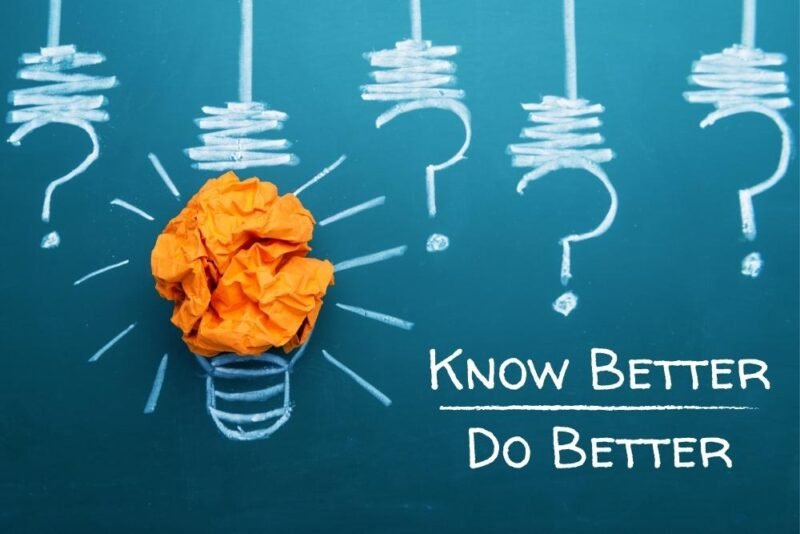

This post is part of my “Know Better, Do Better” series, in which I revisit an old blog post that makes me cringe because my thinking has evolved substantially since I wrote it. The text of the original post is in italics, with my somewhat snarky current notes in plain text.
Note: I wrote the original post back in 2010. As with my previous “Know Better, Do Better” post, this was in the period when I was taking the science classes I needed to apply to grad school to study nutrition. Nutrition wasn’t my profession yet, but it was my hobby. And I was fully on the healthism train. Even though I had some sense of the internal challenges that could get in the way of simply following nutrition recommendations, I didn’t fully understand the extent to which people’s past experiences with food and body — including being put on diets as kids, food scarcity, and trauma — could impact their ability to nourish themselves and practice self-care that is truly about self-care, not self-control.
Dissing dietary dogma
Lately, I’ve been doing a bit of pondering over the fact that not only can people be pretty dogmatic about how they eat (“Eat my way or hit the highway.”), but an awful lot of people seem to form their identity around how they choose to eat (“I’m vegan/vegetarian/paleo/macrobiotic/a locavore, therefore I am.”)
While I believe wholeheartedly that we are what we eat in the sense that the foods we eat provide the raw materials our bodies need for things like cellular repair and energy production (and, if you’re pregnant, for growing a whole human being), that’s all physical. I also believe that eating quality food not only provides us with quality raw materials, but it can also contribute to our mental well-being. So there’s a mental aspect, as well.
But is that all we are? Bodies and minds? Those things are important, to be sure, but think about your friends and family, those nearest and dearest to you. When you consider all the qualities that make them the unique individuals they are, it goes way beyond body and mind. Call it soul, call it something else, but you know what I mean.
OK, all of the above is pretty much OK. It is totally true that many people are dogmatic about their diets, and feel that their way of eating is the ONE right way to eat. It’s also true that components of the food we eat (carbs, protein, fat, fiber, water, vitamins, minerals and phytochemicals) provide fuel for our bodies and cogs for the wheels of its machinery.
I’m not sure what I was getting at with that third paragraph, but reading it now I would interpret it as the idea that food is not just fuel, not just nutrients. It’s pleasure, it’s a medium for memories, it’s part of our culture, it’s something we can come together around. If that’s what I meant, then I still agree with that!
Now, allow me to go off the rails…

Denial is not a river in Egypt
I am exactly the same person I was seven years and XX pounds ago. Sure, I’ve learned some new things and had some new experiences since then, and those things help shape my evolving identity, but my core identity hasn’t changed. Which is one reason it truly shocks me sometimes when I come across photos from back then. I look like a different person, but I’m not.
First of all, I redacted the specific number I gave regarding my weight loss at the time. Numbers like that have the potential to be triggering, and clearly I knew little about eating disorders when I wrote the original post. I think there was some humble bragging going on there, too, which annoys my present day self. I agree that my core identity has remained the same regardless of where I was in my weight cycling. Each of us is who we are, at our human core, regardless of what we weigh.
As for the shock of looking at old photos? Also a very human phenomenon, and one I help some of my clients grapple with today. I think it’s always good to be reminded that we are not 2-dimensional images, that a photo only captures a fleeting moment in time, and what we were doing and who we were with when that photo was taken is more important than how we look in that freeze frame.
Our value is not in the size of our bodies of the food on our forks
It’s easy to beat ourselves up, at least a little, because we don’t weigh what we want to weigh or didn’t eat how we though we should eat today. It can be a struggle sometimes to stick to a healthy path, but life presents lots of struggles…why should food and body weight take on such importance that we sometimes believe that it’s all we are?
You are not your diet.
You are not your jeans size.
You are not a loser if you don’t eat healthfully.
You are not a paragon of virtue if you do eat healthfully.
Easy to beat ourselves up at least a little? Well, that was a massive understatement! What I understood then about the negative impact (and prevalence) of internalized weight stigma and body hatred clearly would have only filled a thimble.
My talk of struggles was a bit of B.S. at the time I wrote this, I was probably past the darkest stays of my borderline-orthorexic tendencies, and was coasting in that dream state of having lost weight and more-or-less keeping it off. (I.e., the phase of regaining despite maintaining my food and activity habits, which happens to pretty much all dieters, hadn’t begun in earnest.) I honestly thought, at that time, that I would be a “successful maintainer.” That I would be a unicorn.
What I said about not being your diet or your jeans size, or not having your worth and virtue determined by how “healthy” your food is? That is true, but I’m not sure I 100% believed it when I wrote it. I was feeling pretty virtuous at that point.

Judgments and misinterpretations
I admit, I sometimes engage in the little mental game of “let’s judge people based on what’s in their shopping cart.” But I always feel bad when I do, because there was a time when I was far from perfect (“Hello? Pot, meet kettle.”) Of course, I’m not perfect now, either, because no one’s perfect. Perfection isn’t attainable, nor should it be, or you’d have nowhere left to grow as a person.
Perfection isn’t attainable? True! (Says the recovering perfectionist.) And I still feel bad when I look at someones shopping cart and notice a reflexive judgmental thought. I blame the insidiousness of diet culture.
I feel better now than I did XX pounds ago, but I don’t feel morally better. Physically, I feel better, simply because moving around in the world with less body weight is easier. (Duh!) I enjoy shopping for and sewing clothes more now. I do like how I look in the mirror (and photos) better now. I enjoy the peace of mind of knowing I’m doing everything I reasonably can to protect my current and future health. But other than that, I’m the same ol’ me.
Well, that’s a load of crap. I did too feel morally better! That was part of my “feeling better,” period. But my feeling better physically? That probably had more to do with the fact that I was pretty active (not sure how compulsive I was at that point…I may have backed off to more reasonable levels), and had good strength and endurance, which is a privilege that not everyone has access to. Even at a higher weight today, I notice the difference when I compare times I’ve been super busy and moving less, or only normal-busy and moving more.
As for enjoying shopping for clothes more? That points to systemic problems, because the higher your clothing size, the fewer the appealing clothing options. (Although things have much improved since I wrote the original post.) And I was clearly hinging my body image on how close I was to society’s “thin ideal.” I was also subscribed to healthism, which brings its own form of morality.

Ewww…I was so uninformed
I don’t throw around the word hate lightly, but I might hate someone because they kick puppies or treat their children like utter crap, but hate someone because they are a vegan? Or because they eat meat? Or because they weigh 100 pounds more than what is probably healthy? Absolutely not. Yet there are many who do hate for precisely those reasons. It’s ridiculous. May I offer a nice side of perspective with your meal tonight?
Hell yes I might still hate people who kick puppies or abuse their children! And all the rest of this is true, except for the sentence “Or because they weigh 100 pounds more than what is probably healthy?” Let me unpack that. First, the “than what is probably healthy” part is icky, and evidence that I knew nothing at that point about the faultiness of research that tries to equate weight with health. It also was very cavalier about the hate part: I don’t think I had any clue at that time of the utter vitriol directed at people, especially women, who are in fat bodies. Vitriol that only increased as social media became more a part of our lives.
“Enough” has to come before “healthy”
I want to help people eat more healthfully and be more active because I done the “before” and the “after,” and I know “after” feels better. I think a lot of people get caught in a rut where they are eating a lot of junk, and they don’t feel their best, and they don’t realize it’s possible to feel better. Or they do know, but they just don’t know how to start to make a change. Or maybe they’re afraid that if they make the switch to healthier food, they won’t enjoy their food as much anymore. Those are dilemmas, not moral failings. And they can all be remedied, if people choose to take that first step toward change.
This paragraph is a hot mess of truths and not-truths and good intentions. Yes, people get in ruts. Yes, people want to change but aren’t sure where to start. Yes, many people assume that “healthy” food doesn’t taste good. But “junk” is a very judgmental word, especially when applied to food. And when I was talking about “after,” I was probably talking thinking “weight loss” even though I didn’t actually write it.
Honestly, some healthy food doesn’t taste good…my husband still won’t let me live down the tofu pumpkin mousse (it was really gross and you could totally taste the tofu) I made back when I was “afraid” of pumpkin pie. Yes, lots of foods that are “healthy” and nutritious also taste good. However, if someone is hesitant to try new things, and these foods are unfamiliar foods (or if they have a history of food scarcity, then, yes, that’s challenging. Ellyn Satter’s “Food Hierarchy of Needs” is helpful for understanding why focusing only on “healthy” food can be putting the cart before the horse.
Carrie Dennett, MPH, RDN, is a Pacific Northwest-based registered dietitian nutritionist, freelance writer, intuitive eating counselor, author, and speaker. Her superpowers include busting nutrition myths and empowering women to feel better in their bodies and make food choices that support pleasure, nutrition and health. This post is for informational purposes only and does not constitute individualized nutrition or medical advice.
 Print This Post
Print This Post







